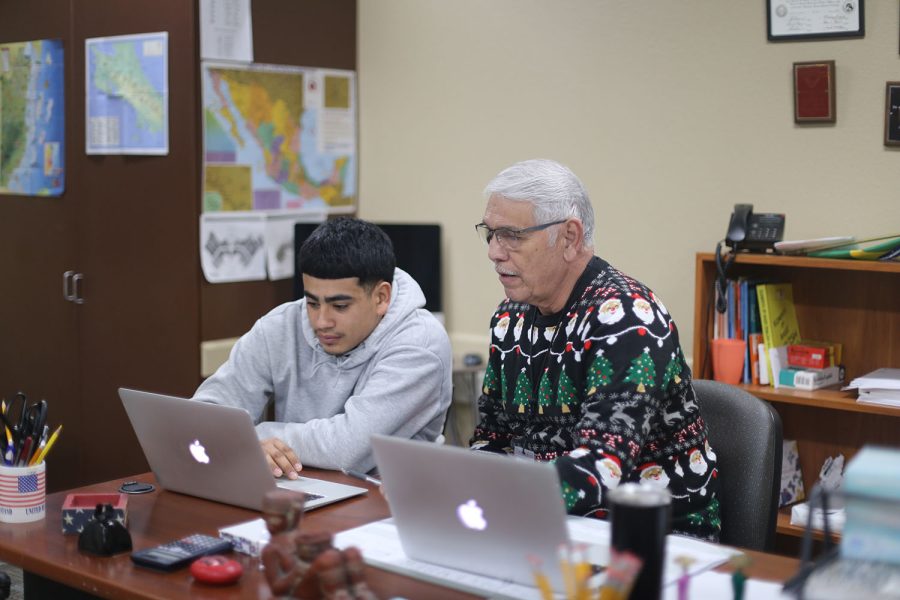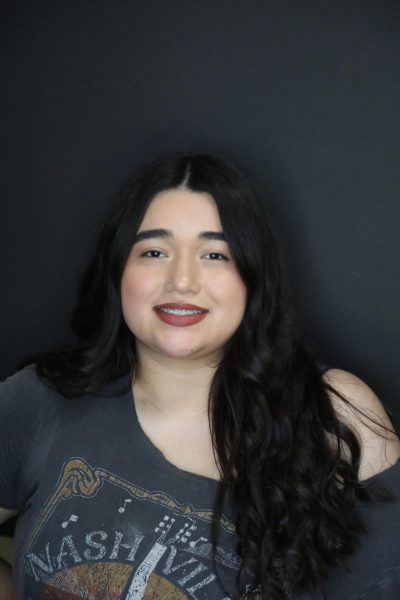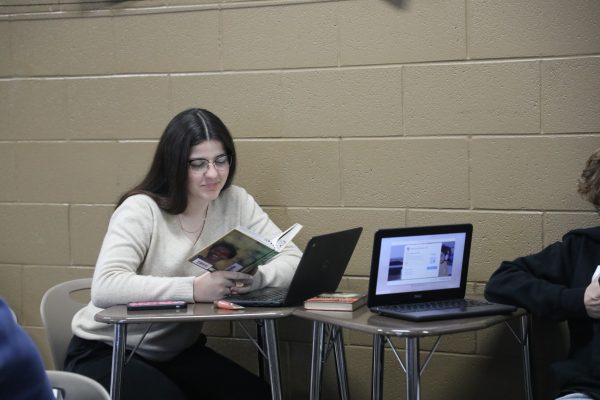Being Bilingual
Covering world history, ESL teacher Fernando Zamarripa helps Junior Sebastian Lechuga Garcia widen his knowledge on governmental systems such as the difference between communism and socialism.
While many recognize the benefits of speaking a second language, there can also be challenges such as confusion and mix-ups which are just a start of being bilingual. Junior Bryan Olivas Navarro explained what his personal experience was with being bilingual.
“Depending on which language I speak. Sometimes I stumble upon my words. And I tend to stutter, but I try not to let it affect how I talk to other people,” Olivas Navarro said.
Another one of the downsides, aside from learning the actual language, was the fear that people would mock their language or accent. Junior Lindsay Lopez Ramos, explained what her concerns were when she found out she’d have to move to a new country and learn a new language.
“I was scared because I knew I didn’t speak English that well and people could laugh at me,” Lopez Ramos said. “A lot of the words weren’t easy to pronounce and it would take a lot to learn the language.”
The fear of not fitting in was only one reason why bilingual students might have been hesitant to speak in their first language or were afraid to engage in a conversation in English.
“They judge us for the way we speak [because] some of us may have an accent when we speak in English, and for other people, it might sound weird or funny to them,” Olivas Navarro said. “That doesn’t give them a reason to judge us because at the end of the day we’re all trying to learn the same language.”
There are hundreds of bilingual students in the school and it is important that all students felt welcome and comfortable in the educational environment. ESL instructor Fernando Zamarripa explained how his students impacted him and how teaching this class has helped widen his knowledge in different countries.
“Learning about the different places they come from. Some of them come from different countries in Central America, South America, not just Mexico but also Puerto Rico and there’s some from the Dominican Republic and other countries,” Zamarripa said.
Although being bilingual can have some disadvantages, there were also many more benefits. Sophomore Wendy Jurado Estrada explained how being bilingual had benefited her daily life.
“Being bilingual helps me everyday, this ability helps me communicate with more people, listen to a wider variety of music and help my parents by translating for them when they really need it,” Jurado Estrada said. “Being bilingual is a privilege in many ways, a privilege not everybody has, and even though you may not be bilingual, you can always learn a second language.”





